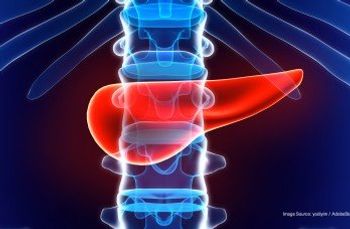
IBI363 Monotherapy Gets Fast Track Status for Advanced Melanoma
Support for the decision follows phase 1 findings evaluating IBI363 in patients with advanced solid tumors presented at the 2024 ESMO Plenary.
The FDA has granted IBI363, a PD-1/IL-2ɑ bispecific antibody fusion protein, Fast Track Designation as a monotherapy for the treatment of patients with advanced melanoma, according to a news release from the drug’s developer, Innovent Biologics Inc.1
Support for the decision follows findings from a phase 1 study evaluating IBI363 in patients with advanced solid tumors presented at the 2024 ESMO Plenary.2
Results showed that among evaluable patients with advanced melanoma who had previously received immunotherapy (n = 37), the treatment led to 11 objective responses, including 1 complete response (CR) and 10 partial responses (PRs), were reported for treatment with 1 mg/kg of IBI363. Furthermore, the ORR and disease control rate (DCR) were 29.7% and 73.0%, respectively, for this patient group.
However, in patients with mucosal melanoma who were immunotherapy-naïve (n = 8), the DCR was 100% and the ORR was 75%, which comprised 1 CR and 5 PRs.
“Melanoma is the most common fatal skin cancer in Europe and the United States,” Hui Zhou, MD, PhD, senior vice president of Innovent, stated in a news release on the FDA decision. “There is an urgent clinical need for patients who have previously failed immunotherapy. As a first in-class PD-1/IL-2α-bias bispecific antibody fusion protein, IBI363 monotherapy has shown encouraging efficacy and a favorable safety profile in melanoma subjects who have previously received immunotherapy. We will continue to explore the efficacy and safety of IBI363 in melanoma to provide more effective clinical treatment for patients with immune-resistant melanoma."
The phase 1a/1b trial enrolled 347 patients with advanced solid tumors to receive IBI363 monotherapy as of the data cutoff date of April 16, 2024. Tumor types included colorectal cancer (n = 102), non–small cell lung cancer (n = 100), and melanoma (n = 89), among others (n = 56). Two or more lines of prior systemic therapy were reported in 81.8% of patients.
IBI363 was administered intravenously (IV) in escalating doses as a single agent and in combination with 200 mg of IV sintilimab (Tyvyt).3 IBI363 monotherapy was given on day 1 of 21-day cycles until disease progression or loss of clinical benefit, with patients given the option to receive combination treatment with sintilimab after discontinuing monotherapy treatment.
The primary end points of the study were incidence of adverse events (AEs) and serious AEs (SAEs) and percent of patients with dose-limiting toxicities (DLTs). Secondary end points included pharmacokinetics, immunogenicity, and preliminary antitumor activity, including ORR.
Topline overall data from the study displayed an ORR of 17.6%, with 3 patients who received at least 1 dose of at least 0.1 mg/kg of IBI363 having a CR and 49 patients who had at least 1 post-baseline tumor assessment (n = 300) who had a PR, respectively. Furthermore, ORR and DCR were 46.7% and 80%, respectively, among patients who received 3 mg/kg of IBI363 and had 1 or more post-baseline tumor assessment.
Common treatment-emergent adverse events (TRAEs) included arthralgia, anemia, hyperthyroidism, and hypothyroidism. Total and immune-related grade 3 or greater TRAEs occurred in 23.9% and 10.4% of patients, respectively. TRAEs that were grade 3 or greater were observed in 13.2% of the 3-mg/kg dose group (n = 38), similar to the safety profile of the total safety analysis set, with no new safety signals identified.
“IBI363, as a first-in-class molecule, represents Innovent's continuous innovation and advancement in the immunotherapy field,” Zhou stated in the press release on the phase 1 IBI363 findings. “[A] promising efficacy signal was shown in IO-naïve mucosal melanoma, a relatively 'cold' tumor, which brings us great confidence in the next step to expand the IO-naive population, and also indicates the broad application potential of IBI363."
References
- Innovent receives Fast Track Designation from the U.S. FDA for IBI363 (PD-1/IL-2α bispecific antibody fusion protein) as monotherapy for advanced melanoma. News release. Innovent Biologics Inc. September 3, 2024. Accessed September 4, 2024. https://tinyurl.com/r5kwvcu2
- Innovent delivers oral presentation on clinical data of IBI363 (First-in-class PD-1/IL-2α-bias bispecific antibody fusion protein) in advanced non-small cell lung cancer and other solid tumors at the 2024 ESMO Virtual Plenary. News release. Innovent Biologics Inc. June 14, 2024. Accessed September 4, 2024. https://bit.ly/4geIAea
- A study evaluating the safety, tolerability, and initial efficacy of IBI110 in subjects with advanced malignant tumors. ClincalTrials.gov. Updated September 14, 2022. Accessed September 4, 2024. https://www.clinicaltrials.gov/study/NCT04085185
Newsletter
Stay up to date on recent advances in the multidisciplinary approach to cancer.











































